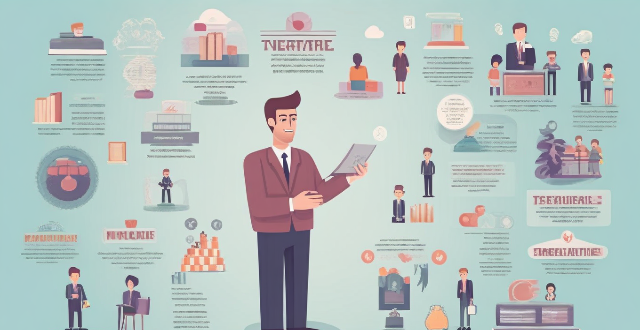The text discusses the importance of international organizations in disaster risk management. It mentions their role in promoting cooperation, developing policies, coordinating resources, building capacity, advocating for risk reduction, and facilitating research. The text concludes that these efforts are crucial for creating a resilient world capable of withstanding natural disasters while minimizing loss of life and property damage.

The Role of International Organizations and Cooperation in Enhancing Global Disaster Risk Management
International organizations play a crucial role in enhancing global disaster risk management by facilitating cooperation among nations, providing expertise, and coordinating resources. This collaborative effort is essential for mitigating the impact of natural disasters and ensuring effective response and recovery processes. In this answer, we will explore the various ways in which international organizations contribute to improving global disaster risk management.
Promoting International Cooperation
One of the primary functions of international organizations is to promote cooperation among countries. By bringing together governments, non-governmental organizations (NGOs), and other stakeholders, these organizations create a platform for sharing knowledge, experiences, and best practices. This collaboration helps to build capacity and strengthen institutional frameworks at the national level, thereby enhancing preparedness and response capabilities.
Developing International Policies and Standards
International organizations are instrumental in developing policies and standards that guide disaster risk management efforts globally. These policies aim to establish common approaches and benchmarks for assessing risks, implementing preventive measures, and responding to emergencies. For example, the United Nations Office for Disaster Risk Reduction (UNDRR) has developed the Sendai Framework for Disaster Risk Reduction 2015-2030, which provides a roadmap for reducing disaster risks through systematic efforts.
Coordinating Resources and Support
In times of crisis, international organizations play a vital role in coordinating resources and support from various sources. They act as intermediaries between donors and affected countries, ensuring that aid reaches those who need it most efficiently. Additionally, they provide technical assistance and expertise to help countries develop their own resource mobilization strategies.
Strengthening Capacity Building Efforts
International organizations invest in capacity building initiatives to empower countries to manage disaster risks effectively. These efforts include training programs, workshops, and seminars that focus on areas such as early warning systems, risk assessment methodologies, and contingency planning. By enhancing local capacities, countries become better equipped to handle disasters without relying solely on external assistance.
Advocating for Disaster Risk Reduction
International organizations serve as advocates for disaster risk reduction by raising awareness about its importance and promoting its integration into development agendas. They work closely with governments, civil society organizations, and the private sector to mainstream disaster risk reduction into long-term development plans. This approach helps to ensure that disaster risk reduction becomes an integral part of national strategies rather than being treated as an afterthought.
Facilitating Research and Innovation
International organizations facilitate research and innovation in disaster risk management by funding projects that explore new technologies, methodologies, and approaches. This research helps to identify gaps in current practices and suggests improvements that can lead to more effective disaster risk management strategies. Furthermore, these organizations often collaborate with universities and research institutions worldwide to share findings and advance collective understanding.
Conclusion
In conclusion, international organizations play a significant role in enhancing global disaster risk management by promoting cooperation, developing policies and standards, coordinating resources, strengthening capacity building efforts, advocating for disaster risk reduction, and facilitating research and innovation. Their contributions are essential for creating a more resilient world capable of withstanding natural disasters while minimizing loss of life and property damage.